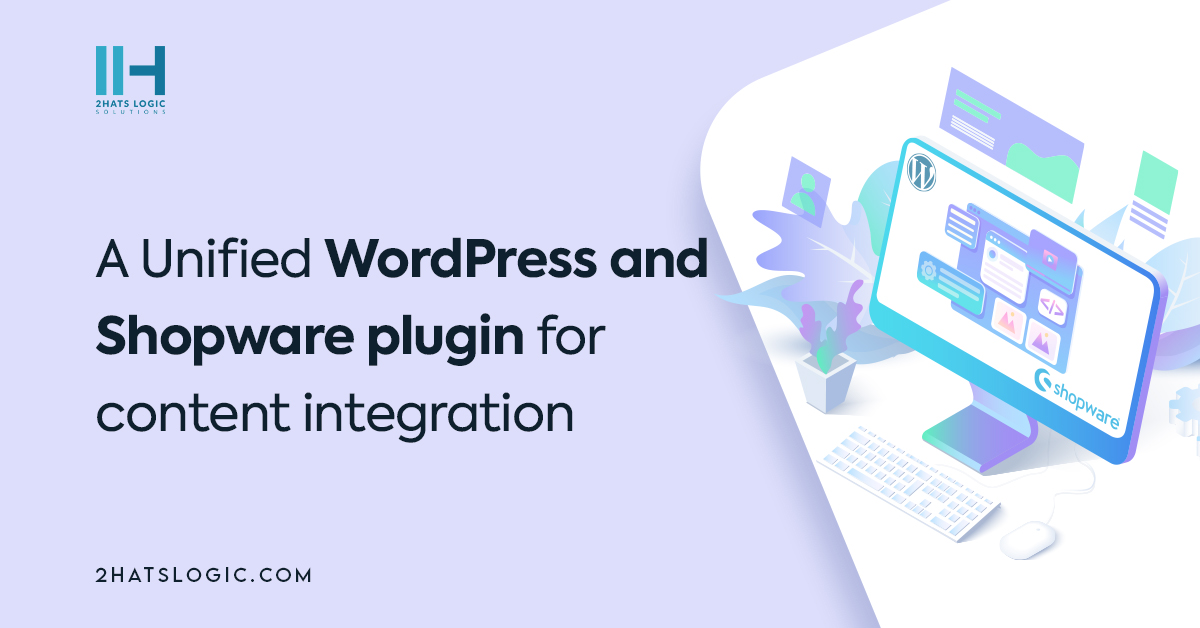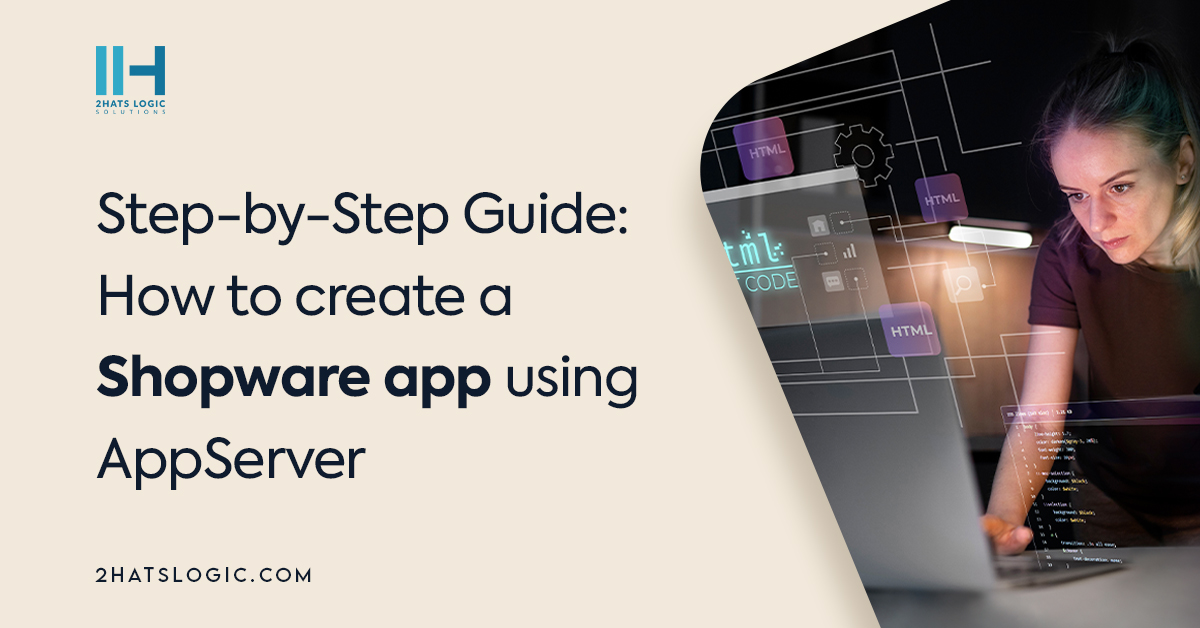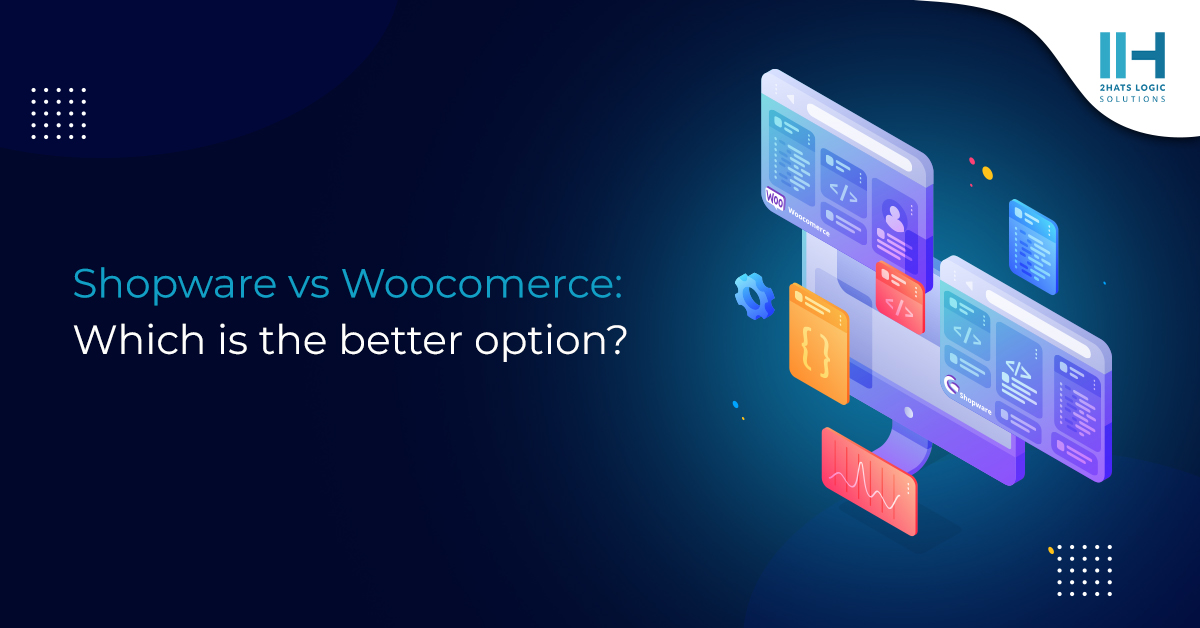Shopware does not permit the display of every component on the plugin configuration page due to its complexities. Instead, Shopware recommends creating custom modules to effectively showcase these components within plugins. While creating our custom modules is an option, it's essential to note that this approach can be time-consuming. As an alternative, we can opt to utilize custom components within the plugin configuration to meet our plugin's specific requirements more efficiently. In this blog post, we will dive deep into a detailed guide on how to elegantly display messages and implement API calling buttons in the plugin configuration by utilizing custom components. Good looking messages In our plugins, we frequently utilize sn...
A Unified WordPress and Shopware plugin for content integration
In a time where online shopping and e-commerce are now the common norm, it makes sense to merge engaging content with seamless shopping experiences. This is why we're excited to introduce a game-changing solution for online businesses seeking to elevate their content strategy and user experience. Our latest plugin bridges the gap between two powerful platforms: WordPress and Shopware, offering a cohesive and efficient way to integrate and display WordPress blogs and landing pages within Shopware's content pages. In this blog, we will be introducing you to this latest plugin highlighting its key features and advantages. To make things simp...
Unlocking the Power of OOP Concepts in Laravel: A Journey of Discovery
Laravel, a PHP web framework, stands out as one of the most popular choices due to its elegant syntax, powerful features, and developer-friendly environment. An essential foundation of Laravel's success lies in its adept integration of Object-Oriented Programming (OOP) concepts, allowing developers to create scalable, maintainable, organized code. In this exploration, we'll delve into how a powerful tool called Laravel can make your web-building journey both fun and productive, all while imaginatively implementing OOP concepts in Laravel. Imagine Laravel as a super-smart helper that speaks the language of web development, making it easy for you to create amazing websites and apps. ...
Step-by-Step Guide: How to create a Shopware app using AppServer
Shopware has emerged as the popular integrated tool for creating online stores and apps. The simplicity of Shopware makes it accessible to users without a technical background, allowing them to easily use and master the platform, further enhancing its list of benefits. In this post, we'll look at how to use Symfony and the Shopware App Bundle to build a simple Shopware app and set up an app server. We'll go over the procedures for developing a Shopware app. You can create and integrate your own app with Shopware by following these steps: Step 1: Creating a Basic Shopware App
Shopware App Architecture: Understanding the structure and components of a Shopware app
The Shopware app system provides a seamless and effortless way to extend and customize the platform, empowering developers to leverage well-defined extension points. With Shopware, you have the freedom to focus on the interface between your app and the platform, without getting caught up in the complexities of the underlying system. Whether you prefer a specific programming language or framework, you can utilize your existing expertise to build tailor-made solutions. The decoupling of Shopware and your app ensures excellent compatibility with the multi-tenant cloud system. By utilizing the Admin API and webhooks for communication, your app can seamlessly integrate with Shopware, facilitating efficient data exchange and event handling. This robust integration approach ensures that your a...
How to Set Up Dynamic SEO URLs in Shopware
A dynamic SEO URL is a URL of a web page that is dynamically generated from the database. It has to change every now and then. Here, we will discuss how we define our own SEO URLs. For this scenario, you can make use of the Shopware built-in SeoUrlRoute classes, which hold all the necessary information about your dynamic route. Let's have a look at an example of the stories section. Each story page has a different seo url with respect to language. So the seo UR...
Shopware vs Woocomerce: Which is the better option?
Online shopping is the go-to method for almost every customer out there, Why? Since it is convenient, easy, and time-saving, who else wouldn't love an option to have all of their shopping done in the comfort of their home and not use up a whole day of it? This popularity of online shopping has led to an increase in shop owners creating their own online platforms. Along with the rise in the popularity of online shopping came the rise in the need to create user-friendly websites with aesthetically pleasing designs and easy-to-use functionalities. This was a major challenge faced by many shop owners who don't possess much techn...
Shopware 6.5 – Major updates and New features
The extremely popular and user-friendly e-commerce application served its users with its best yet version - Shopware 6, which was merely not an updated version but built from scratch with majorly improved features and functionality, now Shopware has yet again brought forward a new update with better features and advantages with the release of Shopware 6.5! If you are here to learn more about the latest update that is Shopware 6.5 then you are already aware of what shopware is, but just to recap and refresh our minds, let’s first take a dive into what Shopware is and the major advantages of using Shopware for your online store. &n...
Common issues when you migrate plugins from Shopware 6.4 to 6.5
Migrating plugins from one version to another can be a challenging process, and this is no different when it comes to migrating plugins from Shopware 6.4 to 6.5. With every new release, there are bound to be changes and improvements made to the platform, and it is essential to keep up with these changes to ensure that your plugins continue to function as expected. In this blog post, we will discuss some of the common issues that developers may encounter when migrating plugins from Shopware 6.4 to 6.5. These issues can range from minor compatibility issues to more significant changes in functionality, and it is crucial to be aware of them before starting the migration process. When migrating plugins from Shopware 6.4 to 6.5, there are ...
How to update the PHP version in the Shopware docker installation.
The default PHP version in the docker Shopware installation is PHP 7.4. If you want to update the PHP version to 8 and above, please follow the following instructions. https://youtu.be/dFQo9wx_EPY Step 1: Update .psh.yaml.dist file Please find the `.psh.yaml.dist` file in the root folder. Inside the file there is a variable `DOCKER_IMAGE_PHP_VERSION`, currently the variable value is 7.4, you have to change this value to 8.1 Step 2: Update composer.json file









